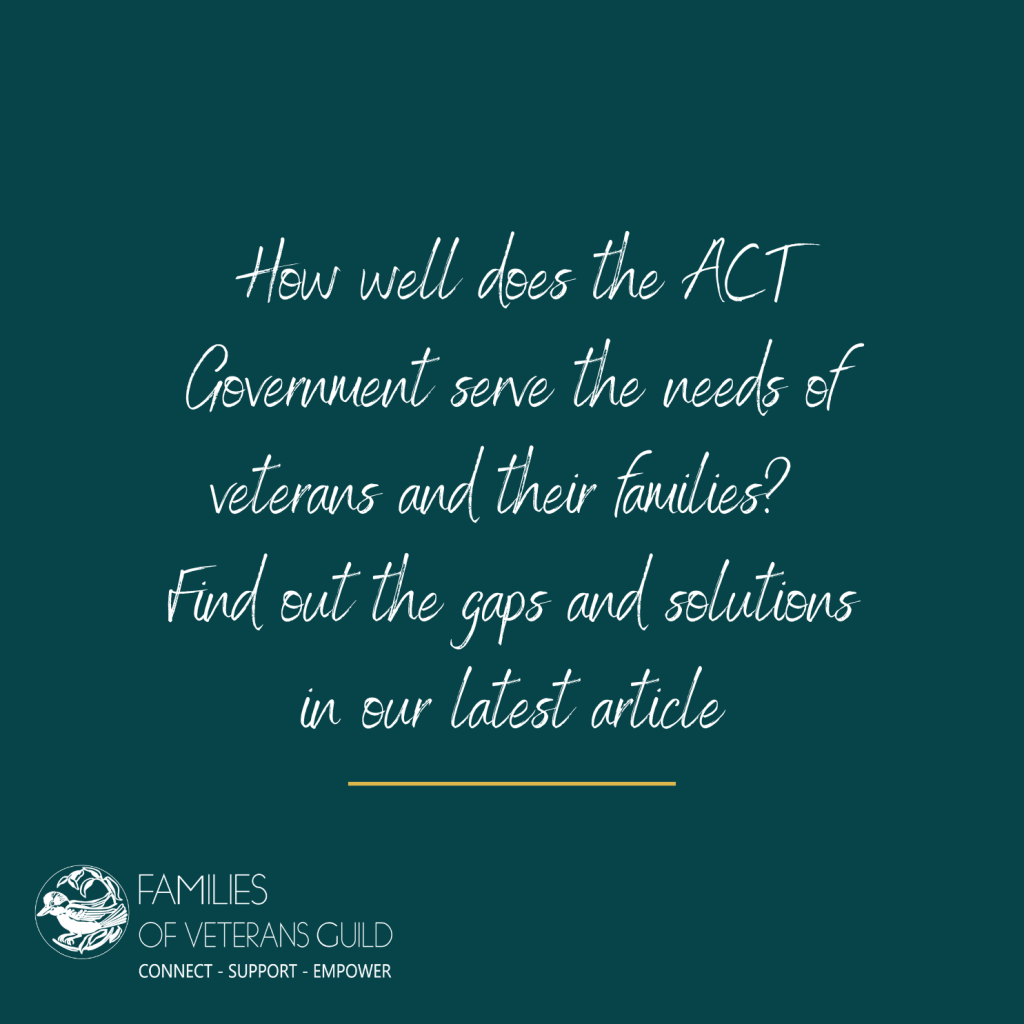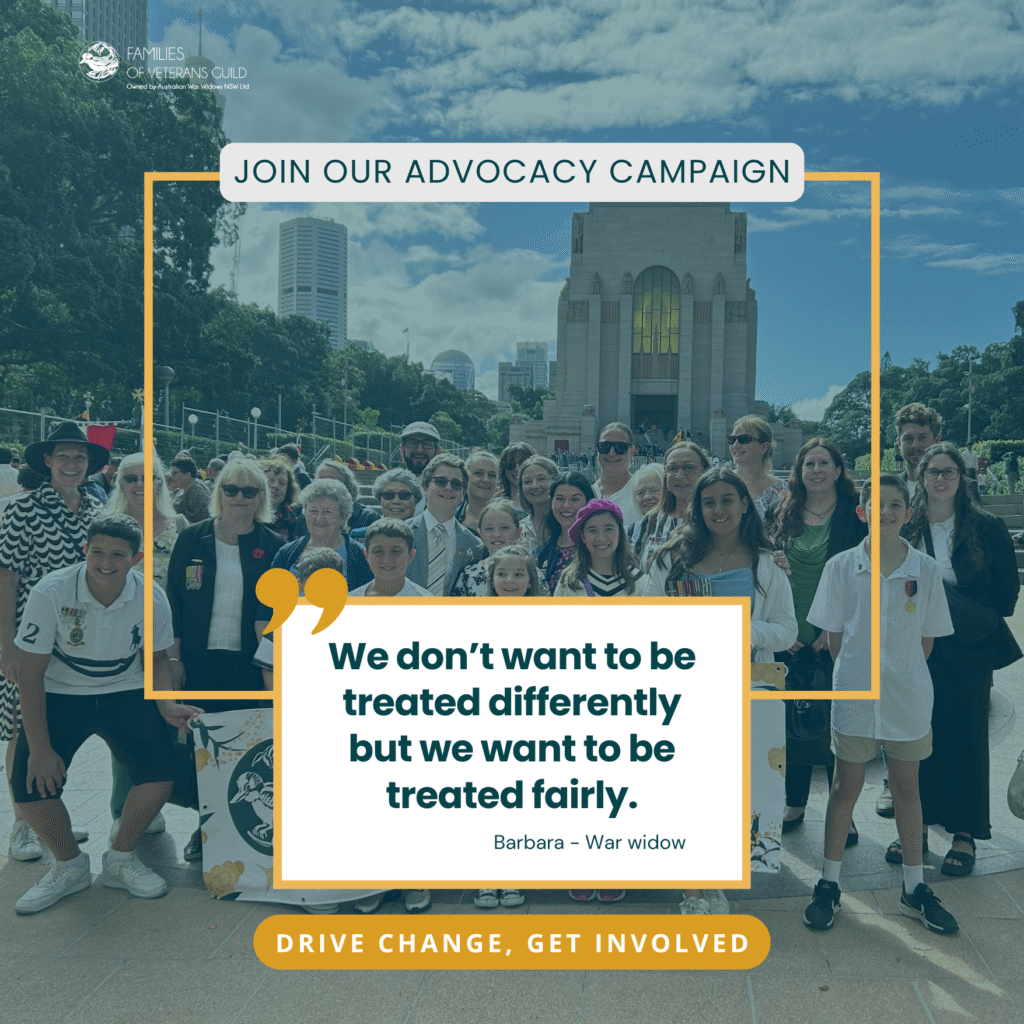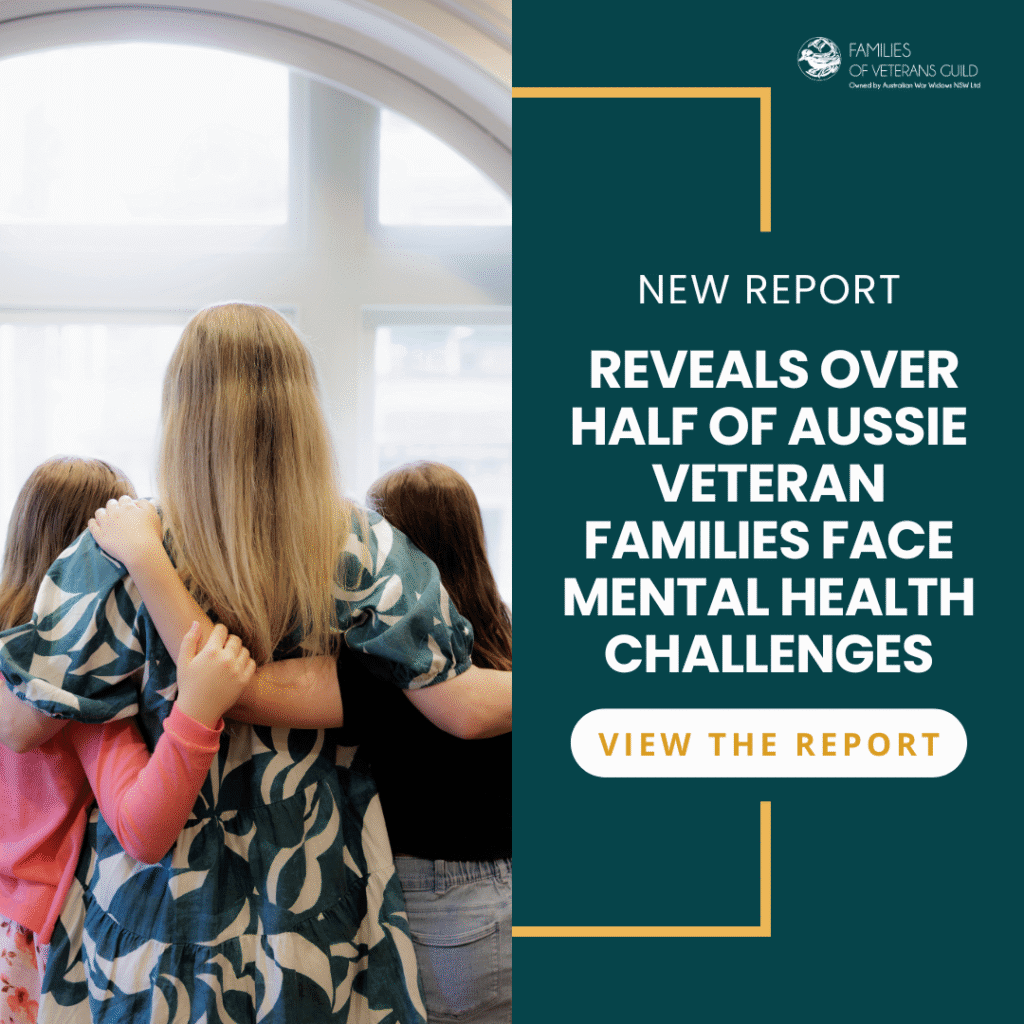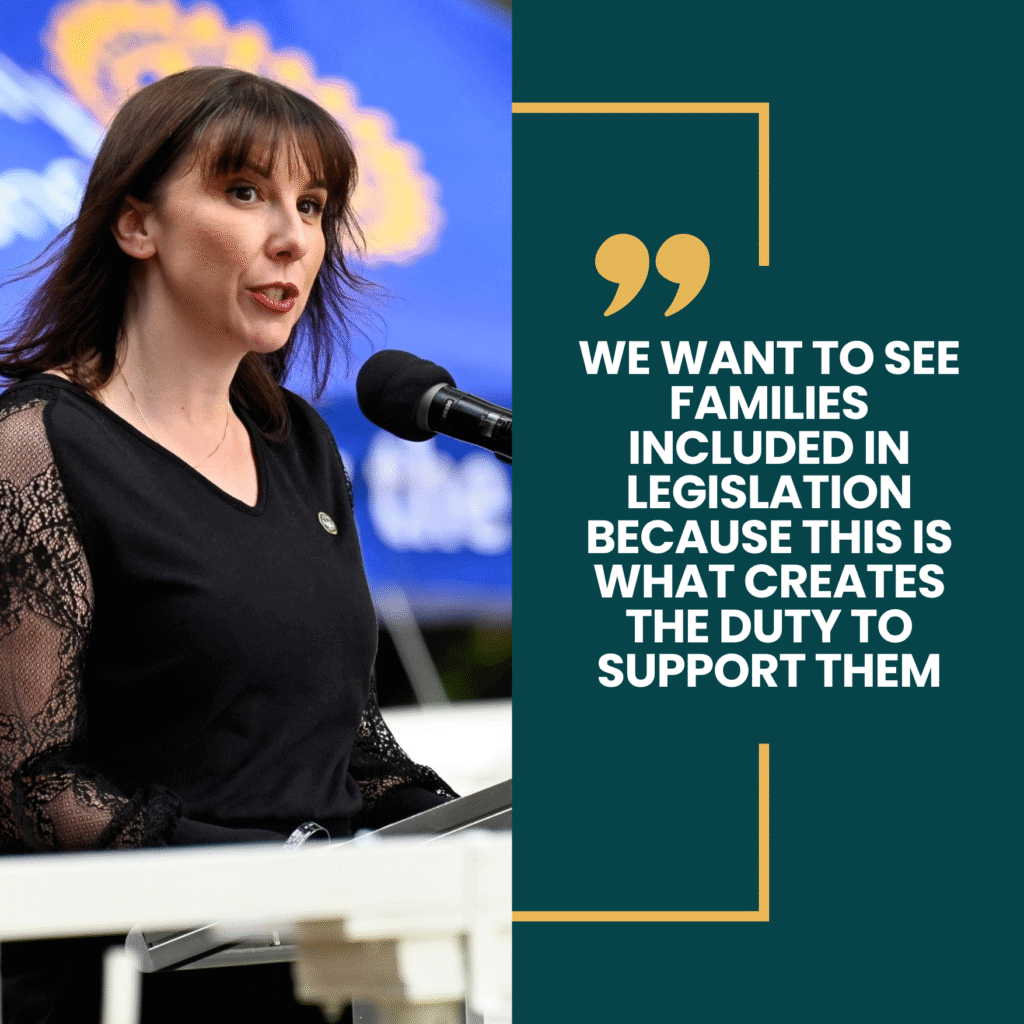ACT veterans and their families deserve better
The ACT election is around the corner, and at Families of Veterans Guild, we are wondering, are veterans and their families really a priority for the ACT Government?
Over the last four years we have seen:
- Ongoing under resourcing of veteran liaison services at Canberra Hospital.
- Failure to advocate for a Canberra based veteran wellbeing centre despite the heightened number of veterans in the ACT community.
- A growing problem and disconnect between the number of volunteer advocates and the demand for services with training barriers. Given the nature of claims advocacy in the ACT, this means that the support capacity in the system is significantly reduced for ACT based veterans and their families.
- Ongoing red tape surrounding DVA and local GPs. Limited access to practices available through Gold Card Medicare arrangements, with less doctors in the ACT taking on veterans and widows, yet administrative arrangements remaining high.
- Ineffective engagement of the veteran sector and a lack of community building resulting in the underservicing of veterans and their families and limited opportunities for local organisations to support this community.
- The delivery of a Veteran and Families Expo in 2024 which was not trauma informed and lacked proper engagement and consultation within the ACT veteran community.
We need a much stronger voice and leadership representing veterans and their families in the ACT, particularly in the wake of the Royal Commission into Defence and Veteran Suicide. This is a community that is some 70,000 strong and as a recent study noted is a “national priority population. ”1 Yet the observations over the last 4 years seem to indicate that this population is not being seen or serviced as a priority population within the ACT.
What is needed?
- Appropriate resourcing of the veteran liaison services at Canberra Hospital.
- A veteran and family wellbeing centre within the ACT, centrally located or in the northern suburbs.
- A veteran and family minister within the ACT who will advocate federally for and about service access issues being experienced within the ACT such as:
-
-
-
- The increasing DVA administrative burden on local GPs. With less doctors in the ACT willing to take on more DVA patients this puts greater pressure on other health services funded by the ACT Government.
- The barriers and challenges being faced by DVA claims advocates within the ACT due to the inaccessibility of the advocacy training program.
-
-
4. The ACT Government to change the way it connects with and engages the veteran and family community. The ACT Government needs to:
-
-
-
- Enhance awareness of local health and social services amongst veterans and their families through providing a service provider toolkit and competency training.
- Drive stronger sector coordination and collaboration by appointing an ACT Veteran Community Coordinator who would at minimum collect, report and coordinate the collation and publication of data about the veteran and family community sector.
- Implement sustainable funding arrangements (including establishing funding pathways) for local veteran and family support organisation to help them build capacity and capability and deliver services to the local veteran and family community.
- In partnership with the Department of Veterans’ Affairs, supporting and commissioning research into areas relevant for the wellbeing of veterans and their families in the ACT and nationally.
- Deliver a professional and trauma informed expo for veterans and their families.
-
-
What do you think? Let us know by emailing our lead Advocate, Renee Wilson at ceo@fov.org.au




